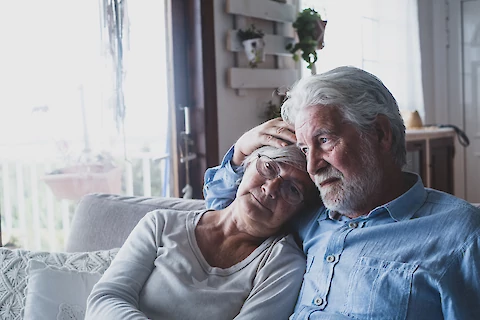
Seasonal Affective Disorder, commonly known as SAD, is a condition that affects many people, particularly during the shorter, less sunny days of the year. While it's a disorder that can influence individuals of all ages, it's especially crucial to understand its impact on seniors. As we age, the natural changes in our sleep-wake cycles, combined with less exposure to sunlight, can make us more susceptible to this type of depression.
Learn the symptoms to watch out for, and get practical advice on managing its effects. It's important to recognize these signs, whether in ourselves or in the seniors we love and care for, to ensure the right help and support is provided.
Understanding SAD
Seasonal Affective Disorder is a form of depression that primarily occurs during the fall and winter months when daylight hours are shorter. It can be particularly prevalent in seniors due to the age-related changes in their biological clock that regulates sleep-wake patterns, combined with less exposure to sunlight due to decreased mobility or time spent outside. This can upset their circadian rhythms, leading to feelings of depression, lethargy, and other symptoms associated with SAD.
Symptoms of SAD in Seniors
The symptoms of SAD in seniors often mimic those of clinical depression. Individuals may experience persistent low mood, loss of pleasure or interest in normal activities, feelings of despair, guilt or worthlessness, low self-esteem, and feeling teary or stressed.
Physical symptoms can include disturbed sleep, low energy or fatigue, reduced sex drive, and changes in appetite. If you or someone you know is experiencing these symptoms, particularly during the fall and winter months, it may be worth exploring the possibility of SAD.
Strategies for Managing SAD
One of the most effective methods for managing SAD is light therapy, which mimics natural outdoor light and appears to cause a change in brain chemicals linked to mood. This can be particularly helpful for seniors who may find it challenging to get outdoors during the colder months.
In tandem with light therapy, maintaining a regular schedule can also be beneficial in regulating the body's internal clock. This includes consistent sleeping and waking times, regular meals, and a steady indoor and outdoor activities routine.
Role of In-Home Caretakers in Managing SAD
In-home caretakers, like those from Senior Helpers Ocean County, can play a vital role in assisting seniors in managing SAD. Caregivers offer companionship, which can help alleviate feelings of loneliness and isolation that can exacerbate SAD symptoms.
They can also assist in implementing strategies to manage SAD, such as ensuring the senior maintains a regular schedule or accompanying them on daily walks for exercise and sunlight exposure. Seniors should always consult their medical care team before starting a new exercise routine.
Senior Helpers Provides Compassionate Care for Seniors
Awareness and understanding of Seasonal Affective Disorder are critical to ensuring seniors' emotional wellness, particularly during the fall and winter months. If you live in Lakewood, Toms River, Manchester Township, Brick, or anywhere in Ocean County, contact us at Senior Helpers Ocean County to learn more about our senior care services.